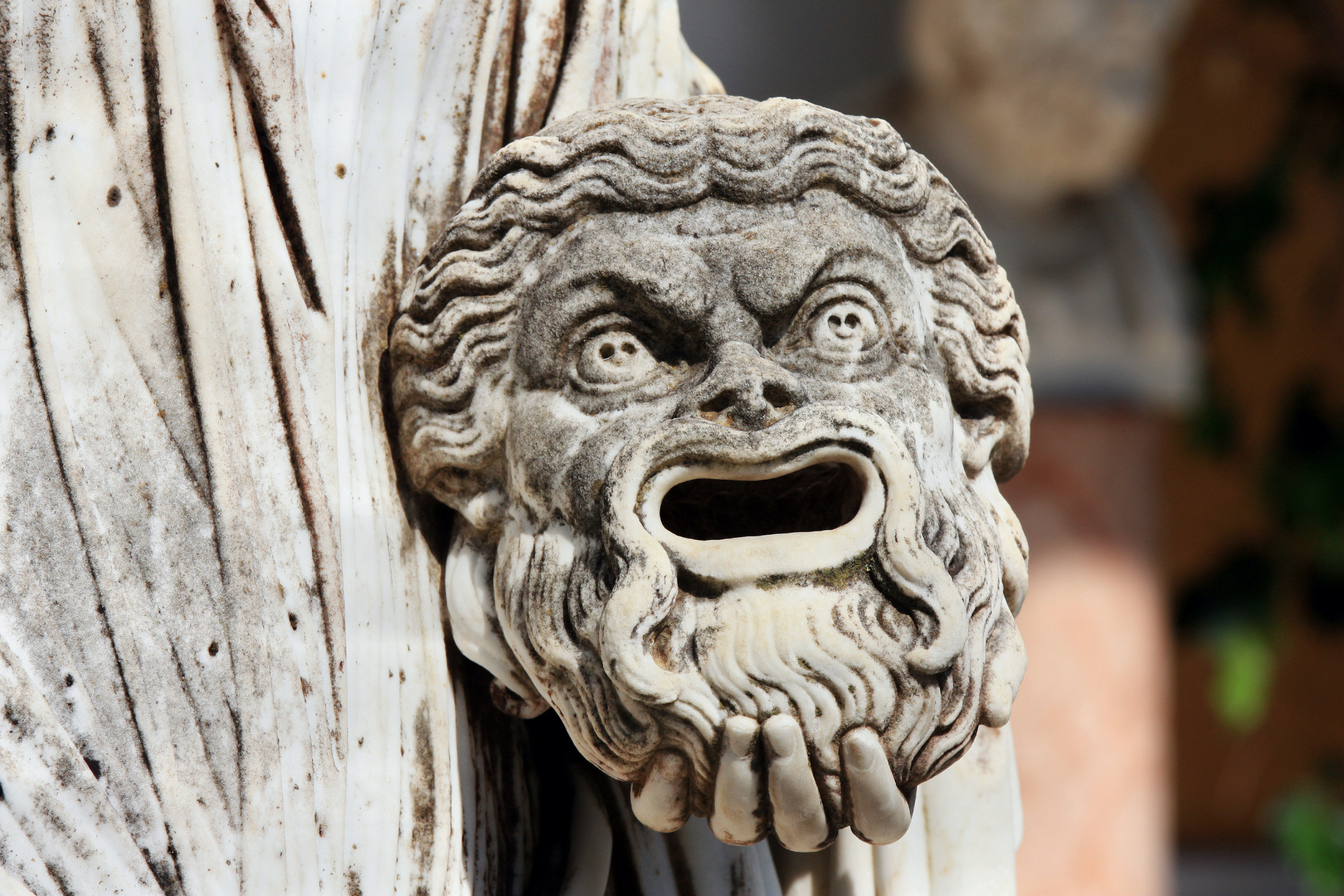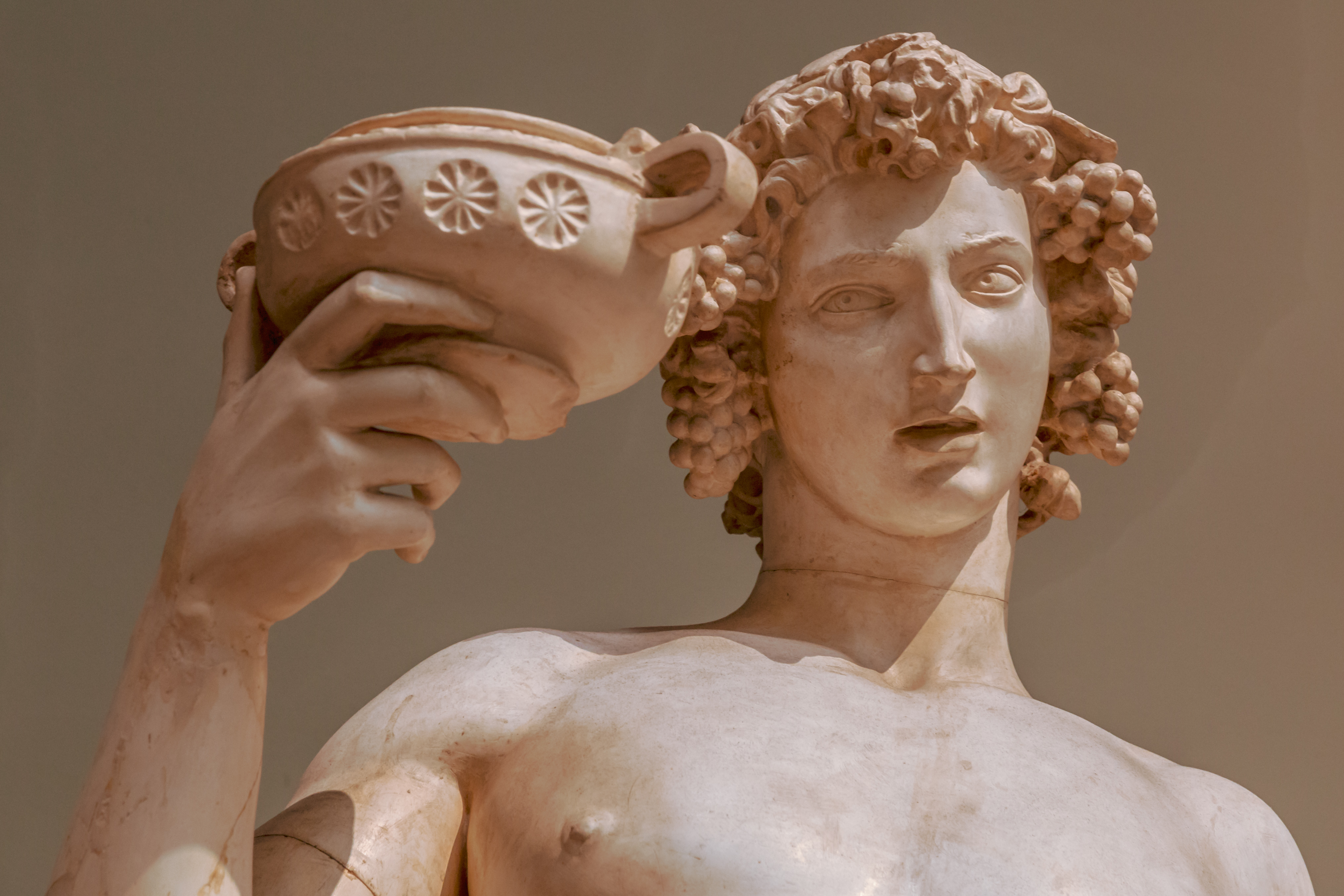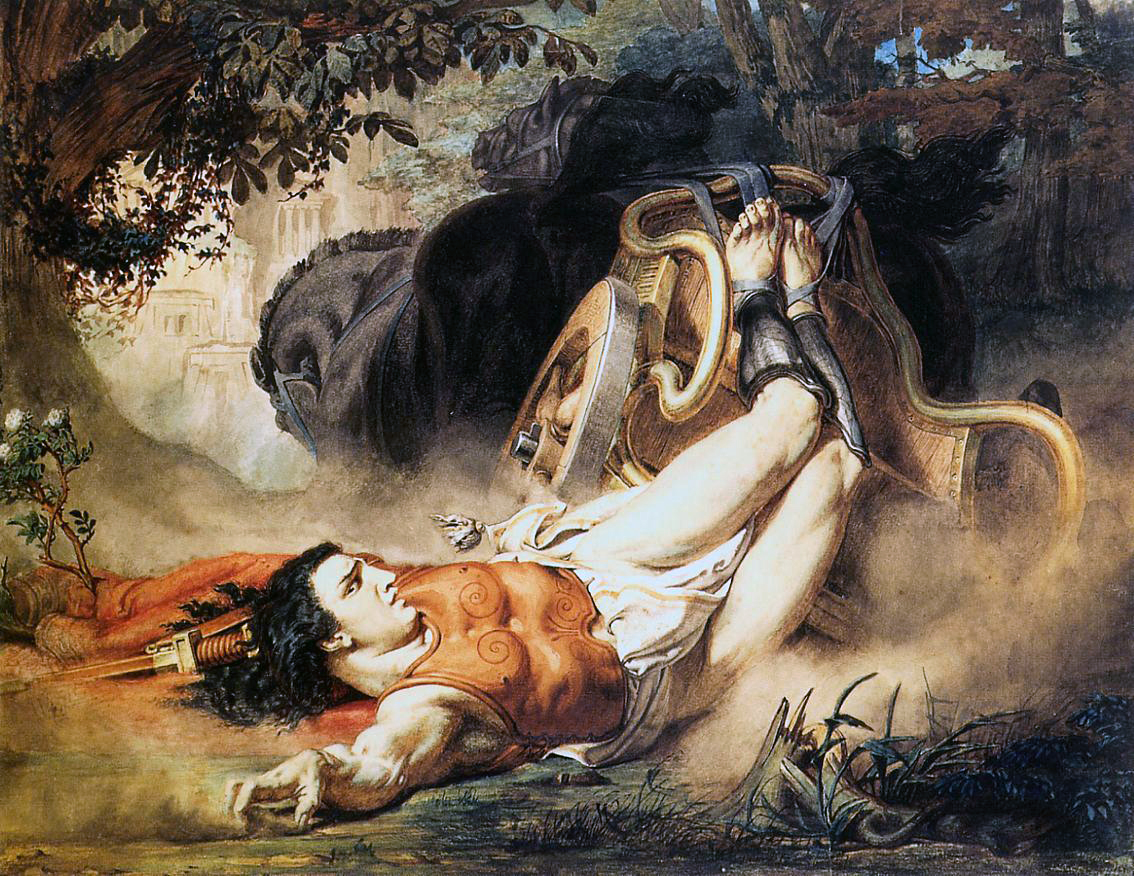Greek tragedy is really Athenian tragedy, beginning around 500 BCE, around the same time as democracy. In fact, Greek tragedy and democracy are twin sisters in a way. A lot of people were writing tragedy at that time and performing in the centre of Athens, but we don’t have their manuscripts.
We do, however, have a few manuscripts from three great dramatists who span the 5th century BCE. The first is Aeschylus, and we have seven plays of his today. We also have seven plays of Sophocles, who was a little younger than Aeschylus and overlapped with him. Towards the end of the century, there’s Euripides, a bit younger than Sophocles, and we have about 17 manuscripts of his. You can see a gradual progression through these works. The plays by Aeschylus are wonderfully lofty, but also really political in the way that they challenge how the Athenians, his original audience, saw themselves in relation to their city and the world.


